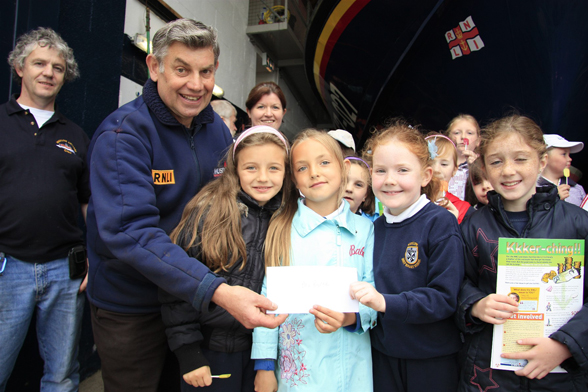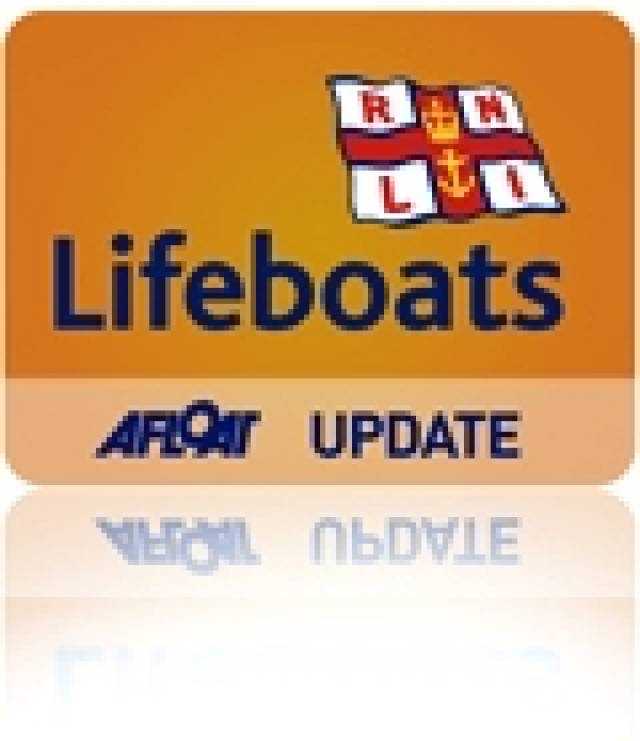Pupils from 2nd Class of Holy Rosary Girls Primary School visited Wicklow RNLI lifeboat Station on Thursday 10th June. They were greeted by some of the volunteer crew and given a tour of the boathouse and the 2 lifeboats on station, they also had the opportunity to try on some of the kit the crew wear and learn about the role of the RNLI in the local community. As the tour concluded teacher Miss Byrne stepped forward to say the girls had recently made their first holy communion and they would like to donate some of the money they received to Wicklow RNLI.
John Hayden who coordinated the visit accepted the donation from the pupils and thanked them for the generous gesture, saying the money would allow the charity to continue saving lives along the Wicklow Coast.
The RNLI Road Show will be in Wicklow during the sail fest weekend, local Sea Safety volunteer Alan Murphy will be available to give free advice on various aspects of safety including lifejacket maintenance. The road show will be located at the RNLI lifeboat Station.
The Annual Wicklow RNLI Model boat day takes place on Sunday 20th June during the Sail Fest , the venue is the South Quay Shed at Wicklow Harbour from 2pm-5pm , all types of model boats and lifeboats will be on display in a indoor pool , this is a free event and all are welcome.

John Hayden of Wicklow RNLI Lifeboat Station accepting the donation from the Holy Rosary pupils - photo RNLI Wicklow
































































